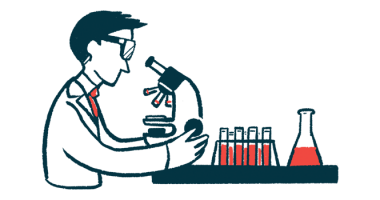Approved Treatments for Muscular Dystrophy
There is no cure for any type of muscular dystrophy (MD), but various medications and therapies can help manage symptoms or slow the progression of the disease. Many therapies are specific to one type of dystrophy. Some of the treatments approved to treat MD are summarized below.
Histone deacetylase inhibitors
Histone deacetylase inhibitors are a treatment approach designed to work by blocking an enzyme that turns off gene activity. This may ultimately help by slowing muscle loss and disease progression.
Duvyzat
Duvyzat (givinostat) is an oral therapy approved in the U.S. for adults and children, ages 6 and older, with DMD. It aims to reduce inflammation and muscle loss in people with DMD, ultimately working to slow disease progression. Duvyzat is a small molecule designed to block enzymes of the histone deacetylase (HDAC) family, which are involved in turning off gene activity.
Exon-skipping Therapies
Exon skipping is a treatment approach for people whose Duchenne muscular dystrophy is due to certain mutations in its causative gene. Exon skipping works like a molecular patch, so that the DMD gene can produce a shorter version of the dystrophin protein to help protect and maintain the strength of muscle fibers.
Amondys 45
Amondys 45 (casimersen) is a treatment for DMD patients with mutations amenable to exon 45 skipping. It is the third Sarepta exon-skipping therapy that the FDA approved for DMD patients. Others include Exondys 51 (eteplirsen) for patients amenable to exon 51 skipping and Vyondys 53 (golodirsen) for those with mutations amenable to exon 53 skipping.
Exondys 51
Exondys 51 (eteplirsen or AVI-4658) is the first treatment approved by the FDA for a specific group of patients with DMD. These patients — 13% of the total Duchenne population — have gene deletions that are amenable to exon 51 skipping. Exondys 51 is designed to address the underlying cause of DMD.
Viltepso
Viltepso (viltolarsen) is an approved therapy to treat DMD resulting from mutations amenable to exon 53 skipping. Viltepso is administered as an infusion into the bloodstream. Patients can choose to receive the weekly hour-long treatment, done by a healthcare professional, at home, at a hospital, or a treatment center. The FDA gave Viltepso conditional approval on Aug. 12, 2020. This conditional approval is pending the results of the ongoing Phase 3 RACER53 trial.
Vyondys 53
Vyondys 53 (golodirsen) is an exon-skipping therapy conditionally approved in the U.S. to treat people with DMD whose mutations are amenable to exon 53 skipping. It is intended to increase dystrophin levels and slow disease progression in eligible patients, which are estimated to comprise about 8% of DMD patients.
Corticosteroids
Patients with MD are often prescribed corticosteroids, also called glucocorticoids, which may preserve muscle tissue by reducing both inflammation and immune system attacks on those tissues. They also may speed up the processes that are involved in repairing cell membranes. There are many types of corticosteroids that may be prescribed for MD.
Agamree
Agamree is a new type of corticosteroid called a dissociative corticosteroid that is intended to maximize the benefits of corticosteroids while minimizing their side effects. The therapy was developed for preserving muscle function and easing inflammation in people with DMD, ages 2 and older.
Emflaza
Emflaza (deflazacort) is an oral corticosteroid approved in the U.S. to treat children and adults with DMD, ages 2 and older. Taken as oral tablets or an oral suspension, it is designed to suppress the immune system and preserve muscle strength.
Gene Therapies
Gene therapy is a promising treatment option for genetic conditions such as muscular dystrophy. It involves correcting the genetic defect by introducing a normal copy of the affected gene into the patient’s cell or by silencing a faulty gene. Harmless modified viruses are commonly used for the targeted delivery of healthy genes into the body. The adeno-associated virus (AAV) is one such delivery vector, and several AAV-mediated gene therapy candidates are currently being evaluated as potential treatments for muscular dystrophy.
Elevidys
Elevidys (delandistrogene moxeparvovec-rokl), previously called SRP-9001, is a onetime gene therapy approved to treat certain patients with DMD. The FDA first approved Elevidys in June 2023, making it the first gene therapy for DMD to be authorized for commercial use. A label expansion one year later made Elevidys available to patients 4 and up, irrespective of being able to walk or not.






